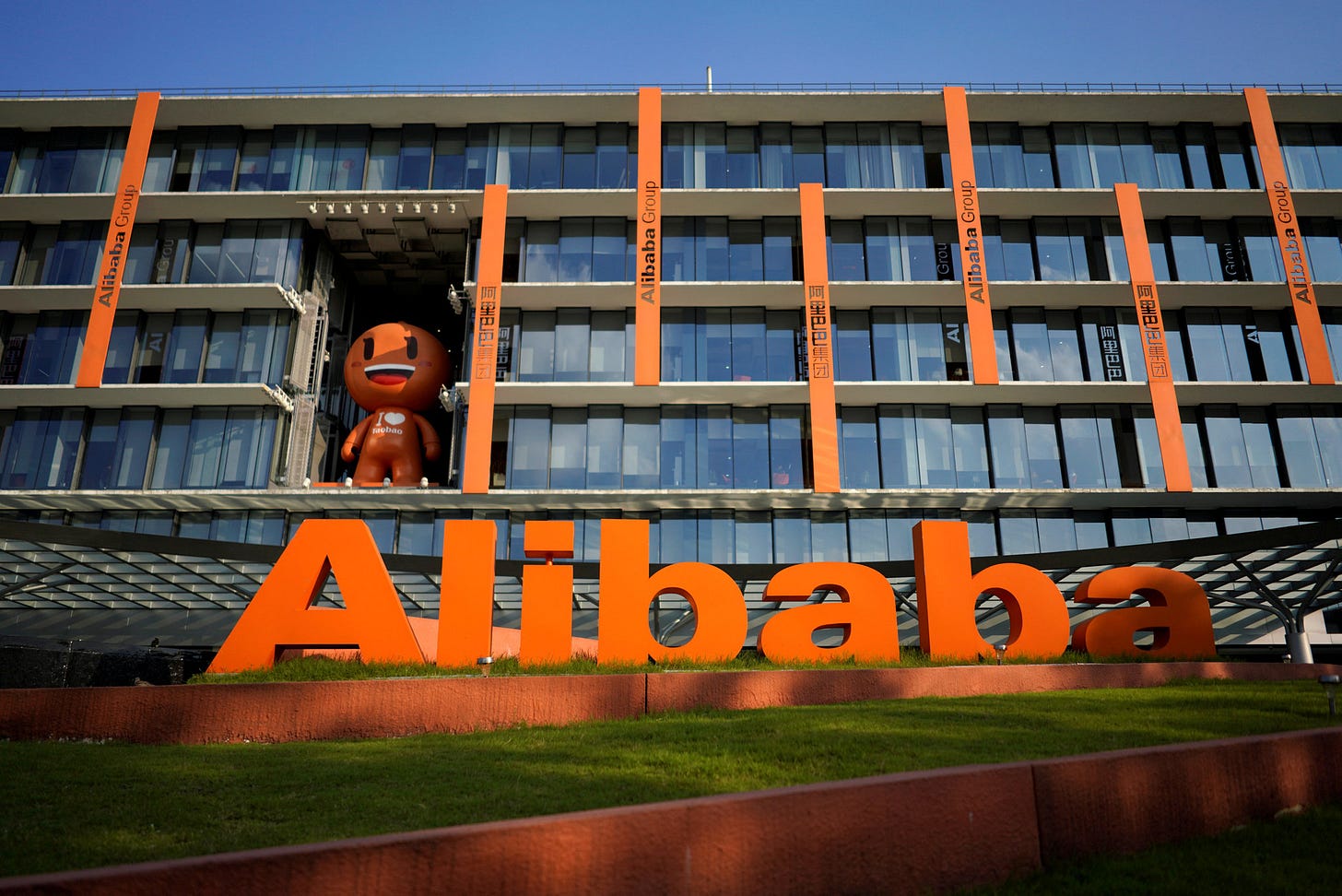Emerging Markets Daily- November 19
India IPO Market Shaky After Paytm Falter, Alibaba Wobbles, Turkey Lira Hits New Low, Binance Founder Loves 'Pro-Crypto' Dubai, Investors Flock to Africa Fintech
The Top 5 Stories Shaping Emerging Markets from Global Media - November 19
Paytm’s Disappointing Debut Dampens India IPO Outlook
Reuters
“Paytm's (PAYT.NS) dismal stock market debut this week is likely to put a damper on future offerings after the IPO of the digital payments firm ranked among the worst-performing in Indian history, six analysts and bankers said on Friday.”
“Indian companies have raised a staggering $9.7 billion through initial share sales in the first nine months of 2021, for the highest such tally in any of the corresponding periods of the last two decades, said accountants EY.”
“But offerings planned for later this year, such as those by payments rival MobiKwik and hotel aggregator OYO, will face questions after Paytm's debut plunge of more than 27%, as investors turned queasy at its lack of profits and lofty value. ‘This episode should hopefully bring some realism to valuations that promoters expect from the public markets,’ said Kristy Fong, a senior investment director at fund manager abrdn, based in Singapore.”
“Investors and analysts who expressed concern over the IPO valuation of the loss-making Paytm at about $18.7 billion had cautioned that ‘frothy’ valuations with unclear business models might not end up well in the current market. ‘It will take three to four months for people to forget Paytm and that it destroyed wealth,’ said Jimeet Modi, founder of Mumbai-based brokerage Samco Securities.”
“But the debut of Paytm, which is backed by Ant Group and SoftBank, was in stark contrast to that of food delivery firm Zomato , which surged 66% in July after raising $1.2 billion. Similarly, shares in FSN E-Commerce (FSNE.NS), which owns cosmetics-to-fashion platform Nykaa, jumped 80% on their debut this month. Now analysts fear that even approaching IPOs which have seen huge demand may take a beating on listing.”
“All eyes are turning to plans for India's biggest-ever IPO, that of state-owned life insurance behemoth LIC, which is expected by the end of March 2022 and could raise more than $10 billion if the government offers a stake of 10%.”
“Some analysts see little risk from the Paytm fallout for LIC, however, as it is a household name in India, commanding more than 60% of the life insurance market, with assets exceeding $500 billion.”
“The government has named Goldman Sachs, Citigroup, SBI Capital Market, JM Financial, Axis Capital, Nomura, BofA Securities, J.P. Morgan India, ICICI Securities and Kotak Mahindra to handle the IPO.” Reuters reports.
Alibaba Falters as JD.Com Rises, Reflecting Diverging Fortunes of China’s Biggest E-Commerce Players
Wall Street Journal
“A disappointing growth forecast from Alibaba Group Holding Ltd. BABA -0.39% helped push down the internet giant’s shares again while those of rival JD.com Inc. JD +2.22% shares jumped, reflecting the two Chinese e-commerce companies’ diverging fortunes.”
“When they reported quarterly results Thursday—shortly after China’s annual Singles Day shopping festival, which ran through Nov. 11—Alibaba lowered an annual sales forecast it had put out just six months earlier, blaming rising competition and a slowdown in consumer spending. JD.com posted better-than-expected results.”
“Alibaba’s American depositary receipts dropped 11% Thursday, to within a few dollars of a multiyear low hit in early October; Friday, its Hong Kong-listed shares fell a similar amount. Meanwhile, shares in JD.com, also traded in both the U.S. and Hong Kong, rallied. The Hong Kong-listed shares surged 9.1%.”
“The growth outlook for Alibaba, which has weathered a series of regulatory challenges in the past year, looks less attractive than JD.com’s, analysts said. With the two reporting on the same day, ‘the comparisons are telling,’ Sanford C. Bernstein analyst Robin Zhu wrote in a report Thursday.”
“While both are operating against a less-than-ideal macroeconomic and competitive backdrop, JD.com is better placed thanks to supply-chain and logistics advantages, Bank of China International analysts said.”
“The market value of Alibaba has fallen by more than half in little over a year, according to FactSet, to $388 billion from a peak in October 2020 of $859 billion. Alibaba has come under unprecedented regulatory pressure this year, including a record $2.8 billion antitrust fine by China’s market regulator in April for abusing its dominant position.” Rebecca Feng reports.
Turkey Cuts Interest Rates, Lira Tumbles to New Low, Inflation Rising
Financial Times
“Turkey slashed interest rates on Thursday, sending the lira tumbling as much as 6 per cent to a new record low, heightening concerns President Recep Tayyip Erdogan’s fixation on low borrowing costs will worsen already acute inflation.”
“The central bank cut its one-week repo rate 1 percentage point to 15 per cent, marking the third straight reduction in interest rates under governor Sahap Kavcioglu from 19 per cent at the start of September.”
“The lira’s decline had eased to 3 per cent by the end of the London trading day. However, the currency has fallen more than 30 per cent this year — on a par with Turkey’s currency crisis in 2018 — as economists fret that low interest rates will worsen an inflation spiral, with consumer price growth having reached an annual pace of almost 20 per cent in October.”
“Lower rates — and a weaker currency — tend to worsen inflation because it increases the price of imported goods, creating a vicious cycle. Erdogan, who holds the unorthodox view that high interest rates cause, rather than tame, inflation, on Wednesday renewed his pledge to free Turkey from the ‘scourge’ of high interest rates.” Adam Samson and Laura Pitel report.
Binance Founder Buys First Home in “Very Pro-Crypto” Dubai
Bloomberg
“Changpeng ‘CZ’ Zhao, who runs the world’s largest cryptocurrency-exchange, bought his first home last month in Dubai in a show of support for a city he describes as ‘very pro-crypto.’”
“‘The government there is very progressive, and it’s a very good business environment,’ the Binance founder said in an interview Friday on the sidelines of the Bloomberg New Economy Forum in Singapore. ‘I want to show that we are committed to the place, so I bought an apartment there,’ he said, declining to disclose the price tag. In an interview earlier this year, Zhao said he didn’t own a house or car, considering such things ‘illiquid.’”
“His choice of residence may provide a clue on the location of Binance’s headquarters. Founded in China in 2017, Binance Holdings Ltd. hasn’t set up a global base yet. Instead, Zhao has incorporated firms in locations where Binance operates, including in Singapore, where he’s been based for two years.”
“In a separate interview at the Bloomberg forum, he told Erik Schatzker that Binance has decided on a location for its global headquarters and will announce it after he communicates with regulators. ‘I am not saying this is where we will definitely base our headquarters,’ Zhao added. ‘But for example, if you look at the U.A.E., if you look at France and Singapore, these regions are all very pro-crypto.’”
“Dubai is vying with Singapore, Switzerland and other countries to become a global hub by setting up a so-called free zone to support the trading of crypto assets. It’s also looking to issue a regulatory framework that will include licensing for crypto trading.” Chanyaporn Chanjaroen reports.
Global Investment Money Flooding into Africa’s Fintechs
Al Jazeera
“Ricky Rapa Thomson was a security guard and then a motorbike taxi driver before he became an entrepreneur. SafeBoda, the startup he co-founded, promises safe and reliable transport on Uganda’s deadly streets. It also offers fintech solutions for its drivers and customers and hopes to become Africa’s largest ride-hailing service.”
“It’s the kind of fairy-tale story that tech investors usually love. Yet it’s also the sort of pothole-filled journey that overseas capital has traditionally avoided in Africa, preferring instead to focus on extractive industries like mining or on infrastructure projects.”
“So Thomson was anxious when SafeBoda sought Series B investments in 2019. But the startup drew funding from the investment arms of German insurance major Allianz and Indonesian super app Gojek, neither of which had ever put money in African tech before. ‘It was humbling,’ Thomson told Al Jazeera, recalling his emotions at the time. ‘It’s an amazing validation.’”
“Two years later, Thomson’s experience resonates with hundreds of African founders, as the continent emerges as ground zero for a stunning surge in fintech funding. Global investors, often from countries that have traditionally not been major players in Africa, are rushing to back promising startups. From giant corporations to venture capital (VC) firms of myriad sizes, no one wants to be left behind.”
“In the third quarter of this year alone, African fintech firms raised $906m, according to Digest Africa, a database of early-stage investments on the continent. That represented more than 60 percent of all venture money that flowed into Africa last quarter, and more than all other sectors combined in the first half of 2021.”
“This year’s trend builds on a separate analysis by BFA Global’s Catalyst Fund, which showed funding for African fintechs grew exponentially, from a mere $385m in 2018 to $1.35bn last year.”
“Three years ago, the continent had one privately-owned startup worth over $1bn – Nigerian e-commerce company Jumia. Today, at least seven African startups have joined the ‘unicorn’ club. Five of those are fintech firms, three of which — Flutterwave, OPay and Wave — became unicorns just this year.”
“In October, Google announced a $50m fund to support African startups. The same month, New York-based Tiger Global invested $15m in Nigeria’s Mono, and $3m in Zambia’s Union54. In March, Tiger Global led a $170m funding round for Nigeria’s Flutterwave, which helped that company become a unicorn.” Charu Sudan Kasturi reports.
“The block of granite which was an obstacle in the path of the weak becomes a stepping-stone in the pathway of the strong.” - Thomas Carlyle






